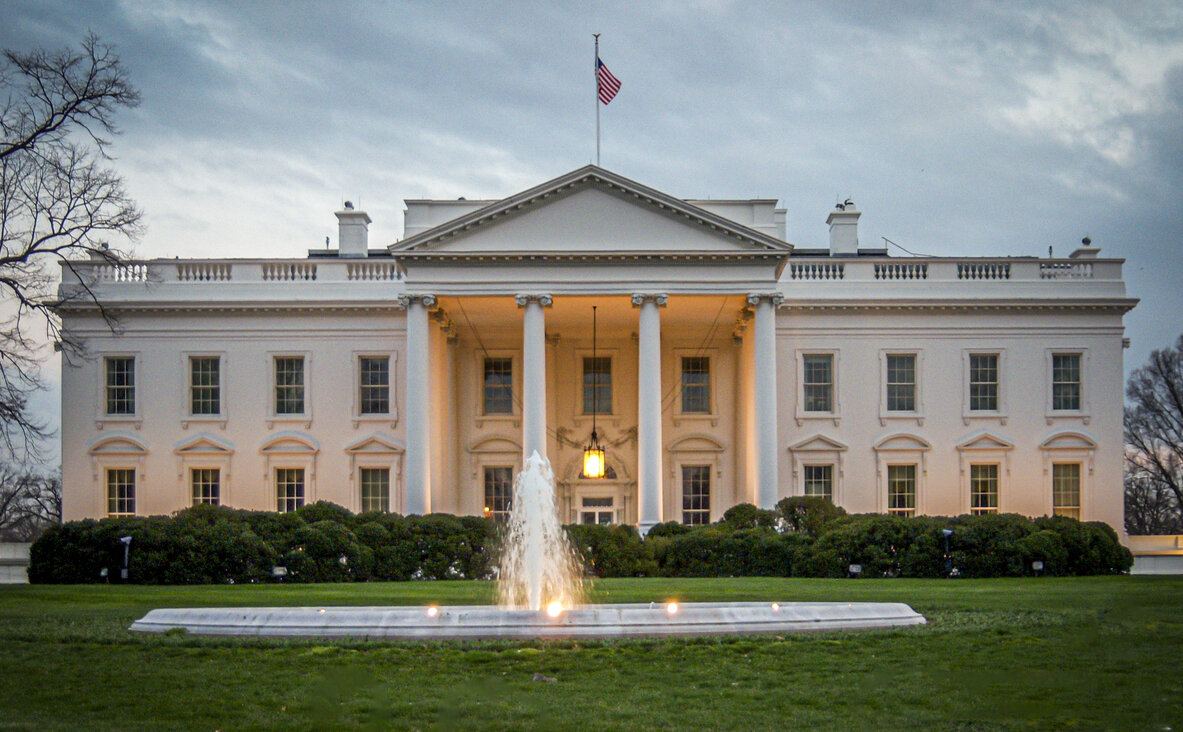A Palestinian Oscar-winner’s arrest shocked the world. For these Jewish activists, it was terrifyingly normal
Palestinians in the West Bank are experiencing an unprecedented increase in attacks since Oct. 7
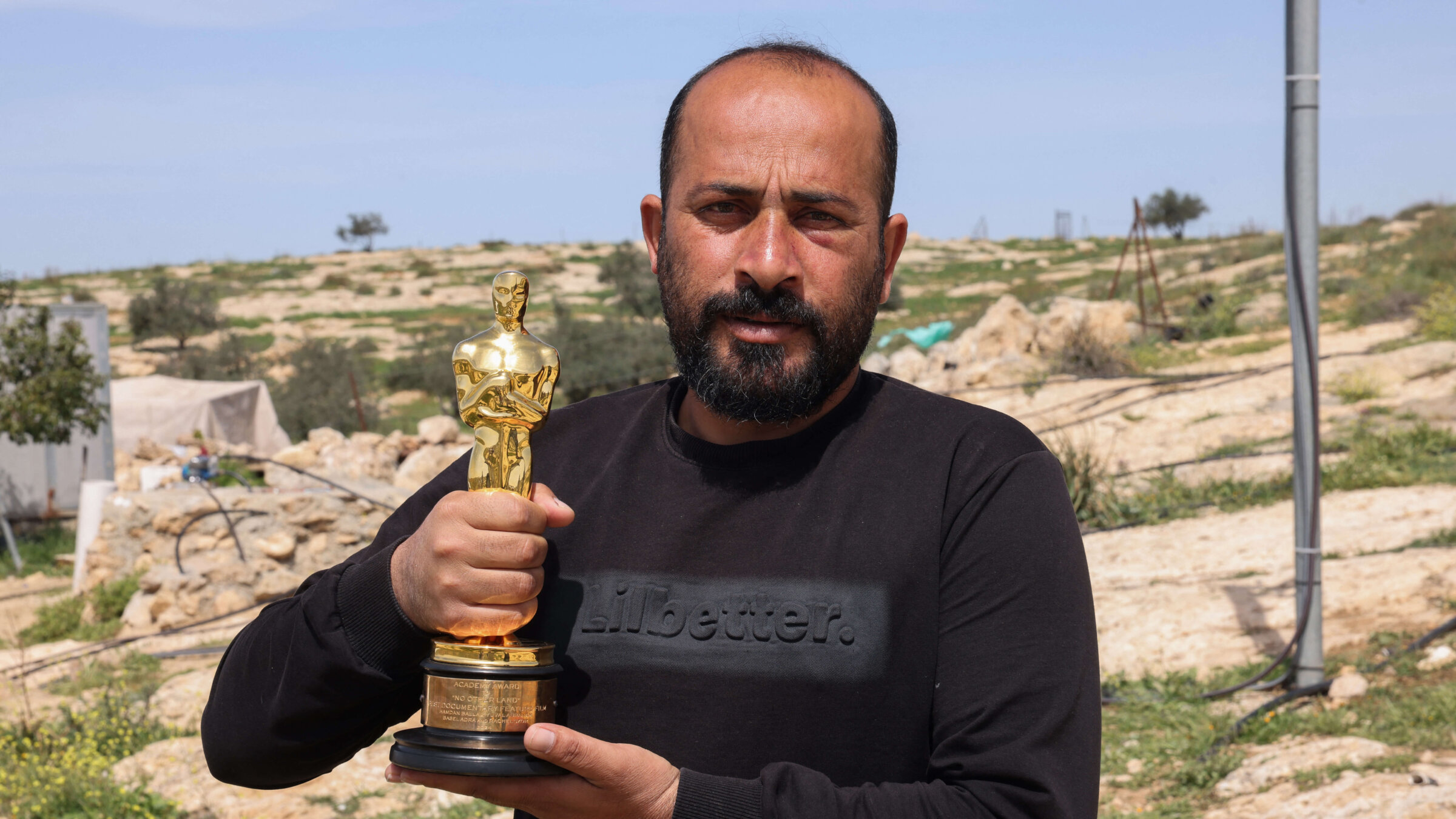
Palestinian filmmaker Hamdan Ballal poses for a picture with his Oscar, won for “No Other Land,” as he recovers after Israeli settlers attacked him at home in his village of Susya in the south of the occupied West Bank on Mar. 26. Photo by Hazem Bader/AFP via Getty Images
Raviv Rose was sitting down to the iftar meal on Monday with their hosts in Umm al Kheir, a Palestinian village in the West Bank, when they got a call that the village of Susya, home of Hamdan Ballal, one of the Oscar-winning directors of the documentary No Other Land, was being attacked by settlers. Rose and their fellow Jewish solidarity activists received at least three such calls per day, about settlers menacing shepherds and their flock, vandalizing schools, slashing tires and attacking people. Their job when those calls come: Peacefully advocate for Palestinians, and document any violence that ensues.
So Rose and three other Center for Jewish Nonviolence activists rushed to their car and drove to the scene.
As they approached the village, they found a line of army and police vehicles blocking the road. Anna Lippman, a Toronto native on her fourth stretch of volunteer work in the West Bank — having initially spent two weeks there during the summer of 2023 — knew from experience that an overwhelming presence of vehicles like this meant that a violent confrontation was likely already underway.
The night’s outcome is now well-known: Ballal was seized by the IDF, and detained and beaten for 24 hours. Yet while his experience made for shocking headlines, the activists on the ground, and the Palestinians who are living under increasing assault from Israeli settlers in the West Bank, are not surprised that an Academy Award-winning filmmaker could be beaten and arrested.
“There’s been an unprecedented media response to an attack that is a well-established precedent,” Rose told me.
Jewish activists like Rose and Lippman have long taken the role of nonviolent observers and witnesses in these altercations, documenting and alerting the world of the state and settler violence Palestinians experience on a daily basis. Here is their account of what happened that now-infamous night, and the challenges and rewards of their work in the West Bank.
An Oscar-winner beaten
The activists, directed by a Palestinian counterpart, approached Susya on an alternate road, circling around and parking at the base of a hill. The sun had already set, and they couldn’t tell if the armed group assembled on top of the hill were IDF forces, police or armed settlers.
As the activists got out of the car, one member of that group sprinted down and started screaming at them.
He shoved Jenna — an activist who asked to be identified by her first name only due to concerns about potential retaliation by President Donald Trump’s administration at her workplace, which is funded in part by the federal government — and punched Rose in the stomach and neck. An activist still in the car began honking its horn to draw the army’s attention to what was happening, prompting approximately 15 settlers to run down the hill and join the attack.
They were armed with knives and rocks. One of them had a gun. They beat the activists and threw large rocks at their car, smashing windows and shattering glass over Lippman’s face and head.
“My entire life, I’d been told that Israel is a safe place for me as a Jew, and the people who were attacking me were Jewish,” Jenna told me. “It makes me question my faith.”
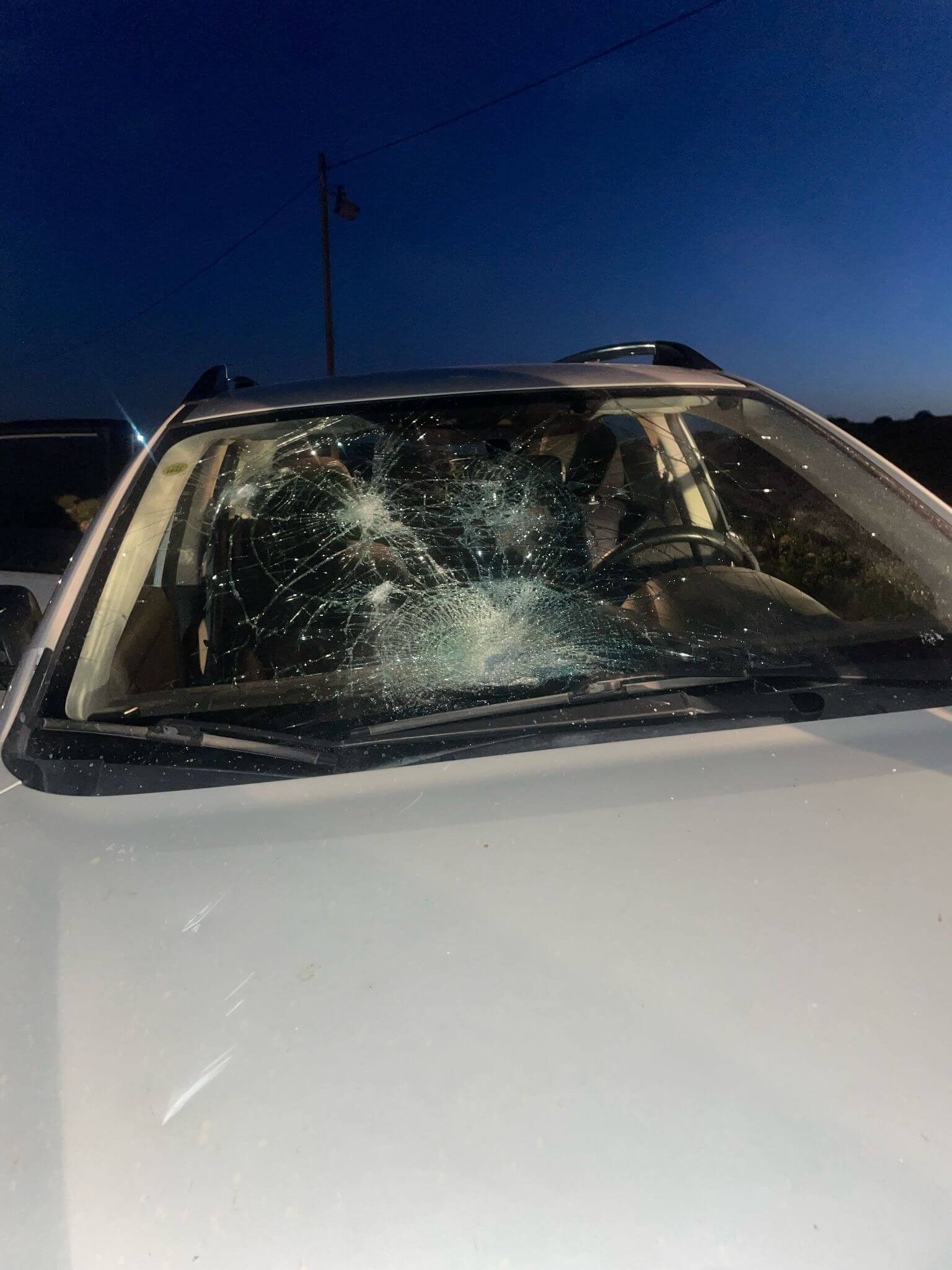
Part of what was terrifying: How young her attackers were. She, Rose and Lippman estimated that the majority of the settlers who assaulted them were between 14 and 19 years old.
“The army did nothing, the police did nothing,” Jenna said; both groups were present, along with the settlers. “We begged them to help us, to do something.”
The activists escaped in the car, even though the settlers had slashed its tires, and ultimately returned to Susya via the first road they tried, progressing on foot around the army vehicles. They saw Ballal, blindfolded and zip-tied, being loaded into an army vehicle along with two other Palestinian men. When they go to Ballal’s house, they saw his blood pooled on the ground at the entrance.
One of his Israeli co-directors, Yuval Abraham, wrote on X at 9:15 pm local time that Hamdan had been “lynched” by a group of settlers who beat him severely, and that he had disappeared after Israeli soldiers had removed him from an ambulance.
What do solidarity activists do?
All of the solidarity activists I spoke with had to traveled to the West Bank with CJNV, which has been training and sending Jewish volunteers to aid in nonviolent Palestinian resistance efforts since 2015.
The current cohort of CJNV solidarity movement activists are split between the villages of Susya and Umm al Kheir. Their days are long, beginning early in the morning as they accompany Palestinian children on their walk to school. (Sometimes, children on such walks have experienced harassment from Israeli soldiers and settlers, hence the need for a Jewish escort.) Then they will join shepherds in the fields as a protective presence, or help with the olive or fava bean harvests.
The late winter and early spring are peak times for grazing animals. But shepherding brings tremendous risk to the Palestinians, as the shepherds are exposed and alone, far from their villages. Settlers will regularly attack their animals, or graze their own flocks on private Palestinian land, pushing out the Palestinian herds. Solidarity activists document home demolitions by the Israeli military; the ones I spoke with described taking children away to distract them when the IDF bulldozers show up.
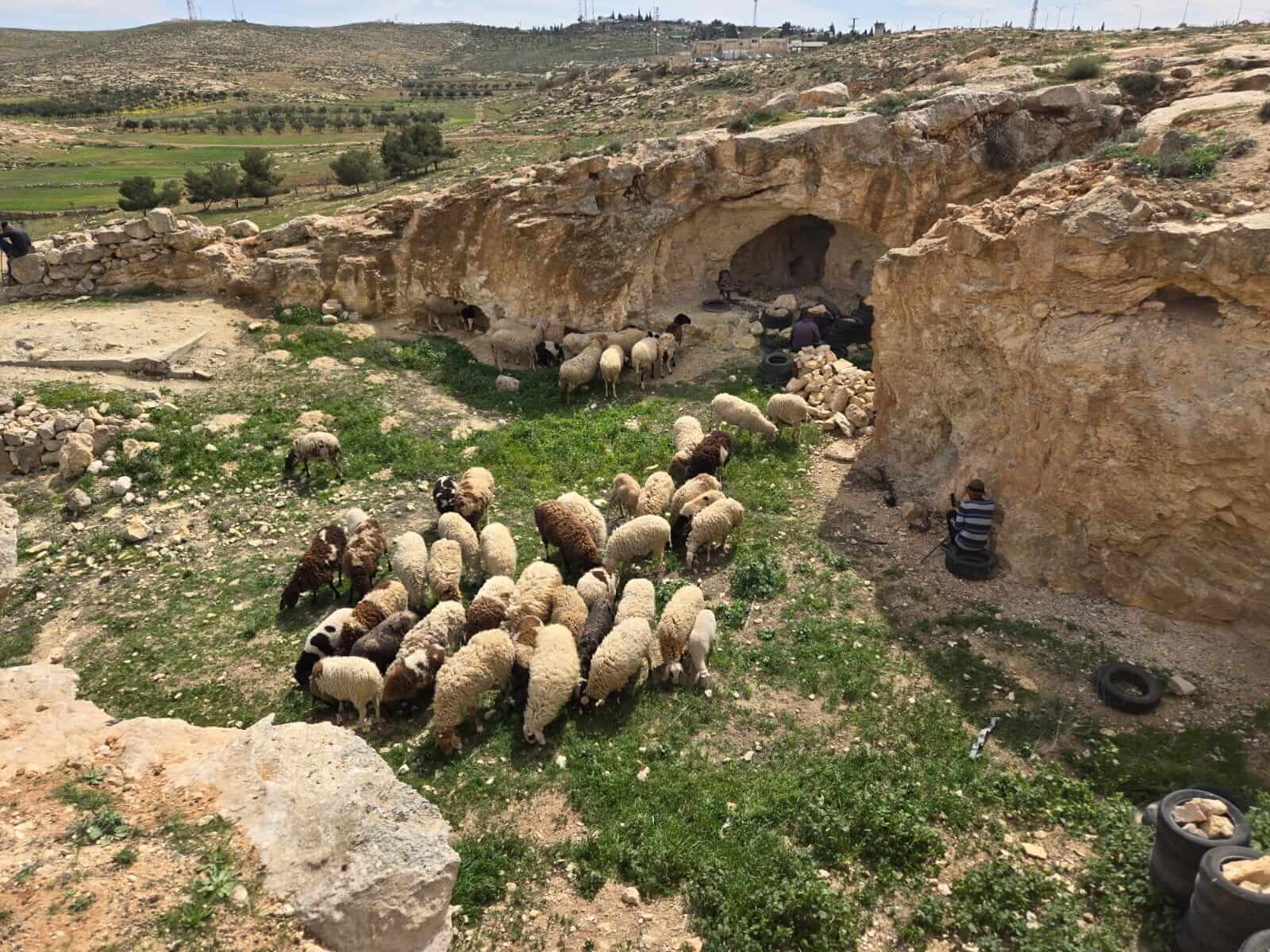
Then, they respond as well to calls like that which came on Monday in Susya: that settlers were attacking the village itself. In the past they have responded to calls of settlers killing livestock, vandalizing cars and farming equipment and throwing stones at houses. The aim of all of these attacks, Lippman said, is the same: to instill fear.
“In the past month, it’s been unrelenting,” Lippman told me. “There have been a lot of attacks of masked settlers.
“When they’re masked, there’s a good chance they’re going to do something where they don’t want their face seen. The Israeli media came out so publicly against the film” — No Other Land — and “they all know where Hamdan lives.”
Life on constant alert
Aside from their regular responsibilities, the volunteers lend a hand in the village, helping to cook and practicing Arabic with their hosts.
“We can walk into any private home in the village, except for now because it’s Ramadan, and have a cup of tea,” Rose told me. They spent a lot of time playing with children. During each of my interviews, I could hear kids in the background; at several points, the activists were interrupted by kids asking a question or needing help repairing a toy.
“I’ve been kicking a soccer ball back and forth the whole time we’ve been talking,” one activist said.
But amid those peaceful, happy moments, the activists live in a state of hypervigilance. Rose told me that when they go to sleep, they put a pair of jeans, already equipped with a belt, at the foot of their bed, so they can be ready to get going at a moment’s notice. Jenna has a go bag ready, packed with items she may need for a call, including a first aid kit, full water bottle, and sunscreen.
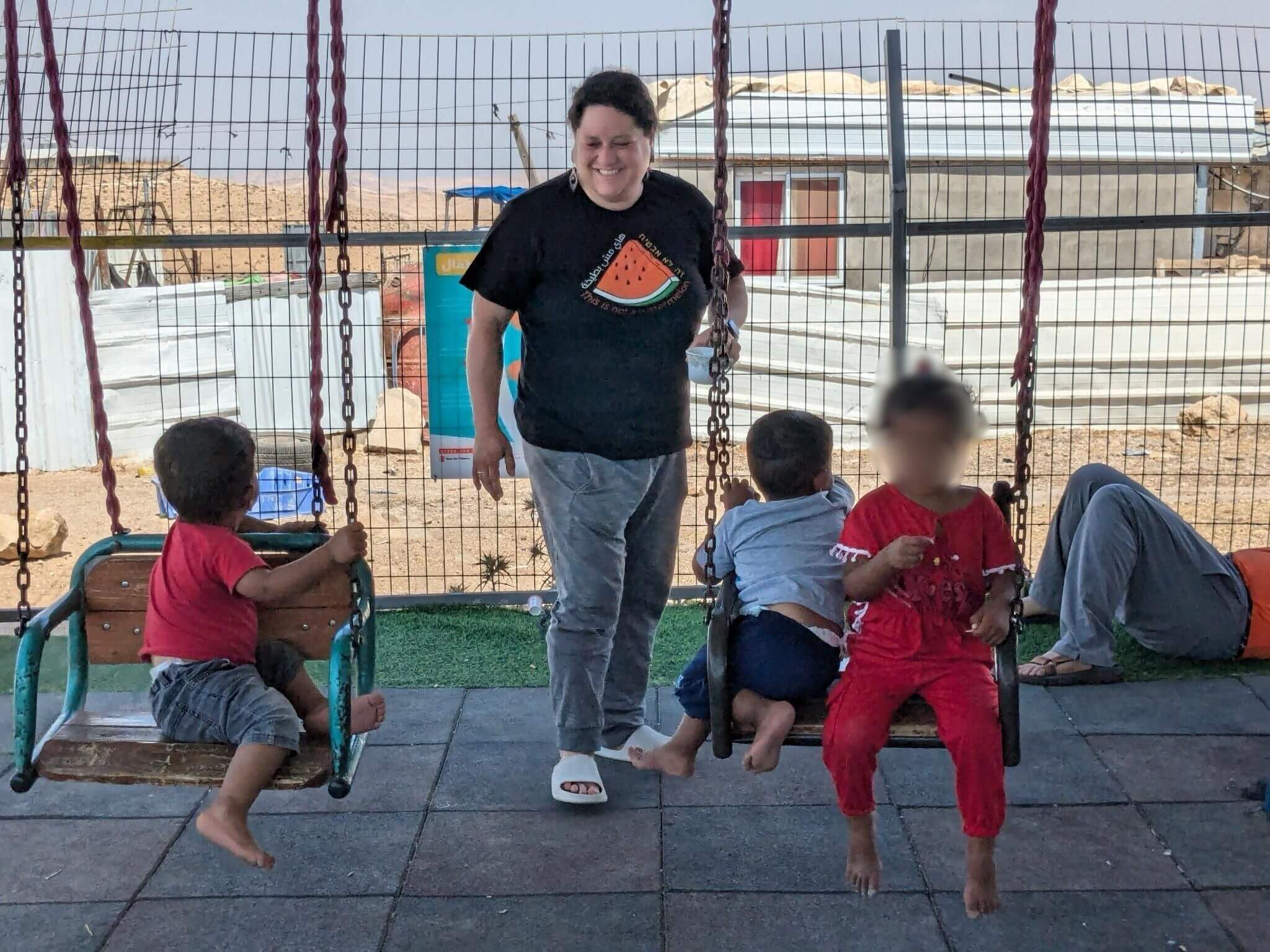
She texted me a photo of her aerosol sunscreen bottle, completely bashed in after the attack on Monday by the settlers.
Attacks like that are “incredibly scary in the moment,” Lippman said. “You’re completely alone, with nothing to protect you.”
On the night that Ballal was detained, Jenna and another activist ended up walking home. It was pitch dark, and unlike the locals — “The Palestinians and the settlers see superhuman in the dark!” Lippman marveled — they couldn’t see where they were going. Jenna had a flashlight but was afraid to turn it on, as her hosts had warned her that turning on a flashlight made them a target: “Settlers can find you and aim for you.”
As they walked, they heard the Iron Dome going off, and watched Houthi missiles get shot down in the night sky. “Any sound I heard, I jumped,” Jenna said. “I was scared a settler would jump out at me.”
Most of the activists I spoke to try to shield their loved ones from the worst of what they and the Palestinians they’re living with experience. “I try to minimize what I tell my family,” Rose said. “It’s a volatile place, in a volatile situation.” Jenna, who was more open with her mother, told me that “She’s proud of me for doing this work, but she wishes it was someone else’s daughter.”
In my conversations with the solidarity activists, they conveyed a weariness that goes beyond physical fatigue. As each activist impressed upon me, what had happened to Ballal, and to them, happens nearly every day in the West Bank. Media attention — including from me — had been drawn to Susya because Ballal brought an Oscar home to the village earlier this month, not because what happened there was out of the ordinary.
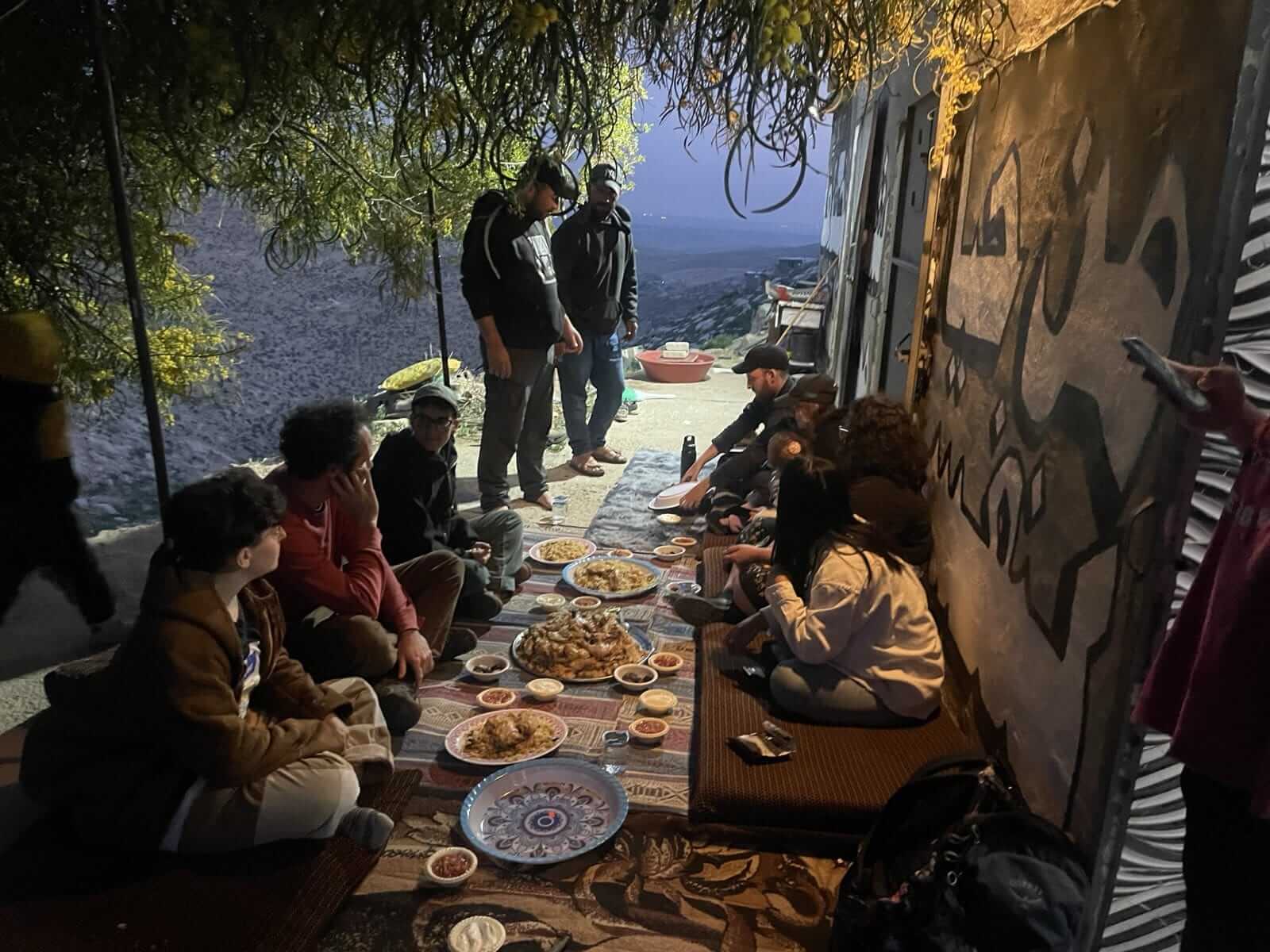
I imagine what I would do if I had been attacked in the dark, and left navigating unfamiliar terrain, scared to turn on a flashlight. I imagine how it would feel to live in a constant state of vigilance, always alert for the next phone call leading me to the next encounter in which I would try to peacefully mediate a profoundly dangerous and unequal situation. The concept of sumud, or steadfastness, is something that Palestinians invoke as part of their resistance to Israel’s occupation.
It’s an admirable ideal, but quite another to put it into practice. No matter how many incidents the activists respond to nonviolently, no matter how much they document, the attacks on their Palestinian counterparts continue. And yet they must stay steadfast. There is no other way.
To do this work requires developing a new relationship with fear. The activists’ wellbeing cannot be their own top priority. “The fear I feel more than anything,” Rose said, “is missing a call.”










